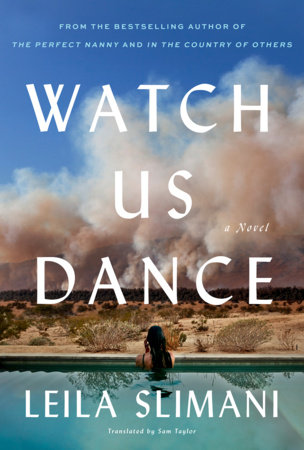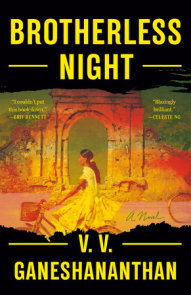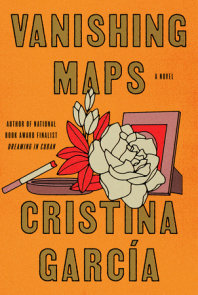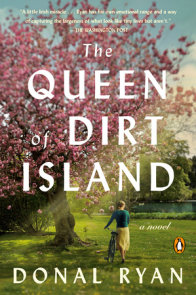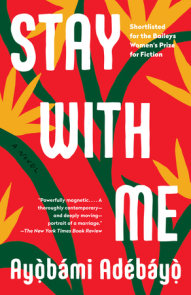READERS GUIDE
Questions and Topics for Discussion
1. In Morocco, Aicha occupies a high social position. She is a member of the bourgeois class, the educated daughter of a wealthy landowner who oversees a community of peasant workers. When she arrives in Strasbourg for school, however, she is no longer treated with the deference she enjoys back home. What is different for her in France? Can you identify some passages that highlight this shift in her experience? What point do you believe the author is trying to make about identity and privilege? Have you ever experienced similar situations in your own life, in which a new context affected some facet of the way you were viewed by others?
2. At the beginning of the novel, Amine’s newly acquired wealth earns him a place in the Rotary Club, which is composed primarily of Europeans. Are the Rotary’s motivations in asking Amine to join entirely benevolent, or are there other reasons they want him as part of their group? The club’s Europeans had remained in Morocco after it gained independence from France, claiming to do so “because they did not want to precipitate the ruin of a country that needed them.” What do their words here—and their actions later—imply about what has or has not changed between Moroccans and Europeans following the departure of the French?
3. “It’s unbelievable. The country’s on the verge of revolution, the people are living in poverty, and Monsieur Roland Barthes is going to pay us the honour of teaching us Proust and Racine!” storms Abdellah, a young political radical at one of Henri and Monette’s parties, about a French intellectual coming to teach at a Moroccan university. What do you believe it is about this situation that has frustrated Abdellah? We know that Morocco has only very recently become independent from France at the novel’s beginning. What of the old colonial hierarchies do we witness still being reproduced throughout the book? Do you feel that any new hierarchies have assumed a place beside them? What do you believe Mehdi means when he refers to Aicha’s father—who is Moroccan—as a “colonist”?
4. “Amine started to hate the city,” writes Leila Slimani, “…the city and its cafés whose open mouths devoured the virtue of young women and the desire for work in men.” Throughout the novel, we see a tension between rural and urban life. Some characters, like Selma, even move from the countryside to the city. What do you think Selma was—and others were—looking for in trading a rural lifestyle for an urban one? Do you feel that they found it?
5. Much of the novel takes place during Morocco’s “Years of Lead,” a period of political turbulence and state repression that followed the country’s independence from France. In its earlier pages, Amine warns a man that “here in Morocco, you can’t speak freely.” Later, Mehdi is questioned about his university lecture by a mysterious, sinister man—who turns out to be Amine’s brother Omar, a policeman. How are the book’s characters affected by the political conditions of their country? In what ways does the country’s tumultuous coming of age parallel the coming of age of Aicha and Selim?
6. The late 1960s and early 1970s represented a period of major social change, both in Morocco and around the world. A key theme in the novel is the tension between traditional and modern lifestyles. How do you see this tension operating in the lives of Aicha and Selim? Can you point out moments in which you see this tension at work in Moroccan society more broadly? How does the descent of the hippies upon Essaouira and Casablanca—bringing with them hallucinogenic drugs, free love, and even American rock ‘n’ roll icon Jimi Hendrix—connect with this question?
7. “Women,” Selma thinks, “are like those countries devastated by foreign armies, the earth scorched, the inhabitants forced to forget their own language, their own gods.” What events cause her to think this, and what do you believe she means by it? Do you believe some of the novel’s other women—like Mathilde, Aicha, and Fatima—would agree or disagree with Selma?
8. The novel opens with Mathilde watching the swimming pool being dug. Later, Mathilde swims in the finished pool before the wedding, and Aicha leaps in after her, concerned that Mathilde is dead. What does the pool represent for the Belhaj family, and how do you see the pool functioning throughout the novel? What do you think the author is suggesting when, at the start of the novel, the pool’s construction requires the destruction of Mathilde’s garden? How did you read the scene between Mathilde and Aicha before the wedding, and their shared sense that Mathilde’s “false death” implied “a warning, a threat, whose exact nature they were unable to decipher”?
9. What is Aicha and Mehdi’s conjugal life like after their marriage? Do they appear to have an equal partnership? How does Mehdi appear to view Aicha and her role in the marriage, and do you believe his views seem in line with the way Aicha views herself?
10. Aicha prepares a dinner for Mehdi’s colleagues and decides to feature sauerkraut and pork sausage, a recipe from her mother’s home of Alsace, as the main dish. How is this food received by the dinner guests? Aicha introduces the plate as “a typical dish from my homeland,” and then immediately second-guesses her choice of words. How do you read her initial statement, and what do you believe it says about how Aicha sees herself?
11. When we are first introduced to Mehdi, he is a passionate, philosophical, political idealist, jokingly referred to as “Karl Marx” by his friends. How do his ethics change by the end of the novel? How would you describe his desires, motivations, and beliefs later in the novel, and what do you see as the causes of these compromises and corruptions? Does Aicha’s attraction to Mehdi also change as he does? Is Mehdi the only character whose values shift in this way?
12. What is the reason for the celebration that happens in the book’s last chapter? How does Amine seem to react to it? What do you predict will happen to the Belhaj family in the wake of this momentous political decision?
13. Although it stands on its own, Watch Us Dance is the second novel in a trilogy covering several decades and generations of a single family based on Leila Slimani’s own family. The first novel, In the Country of Others, focuses on Mathilde and Amine, who are based on Slimani’s grandparents; Aicha and Mehdi in Watch Us Dance are based on Slimani’s parents. What does Slimani’s attitude toward her parents seem to be? In the context of them and the book’s other characters, how do you understand the novel’s title—who is dancing and who is watching? How do you see the title interacting with the novel’s theme of insiders versus outsiders? In what moments of the novel can Aicha and her brother, Selim, be considered insiders, and in what parts do they exist more on the margins?









